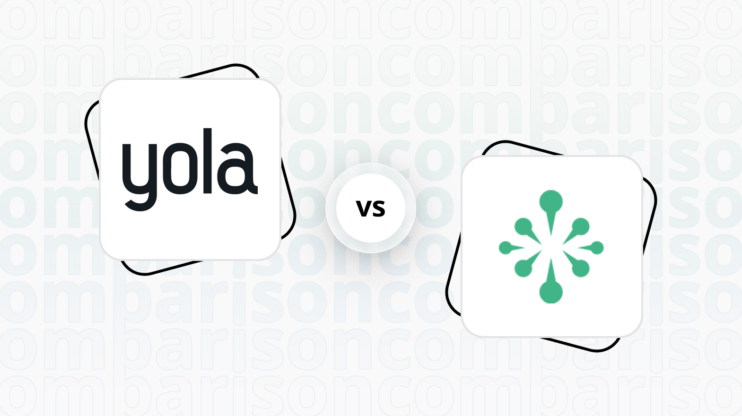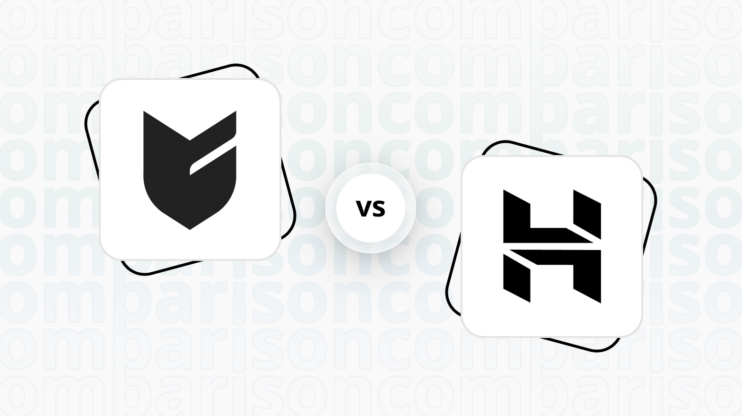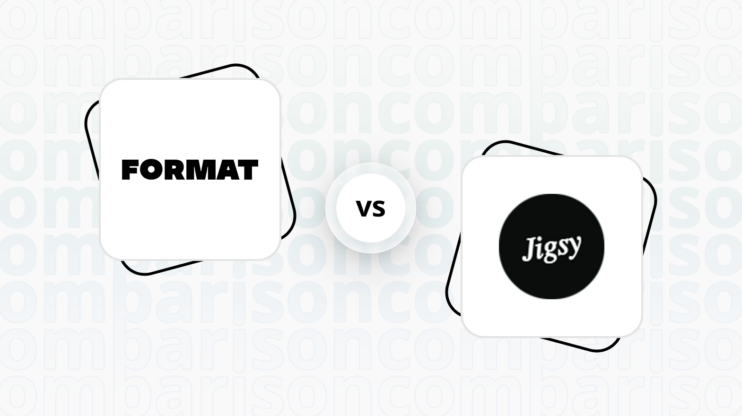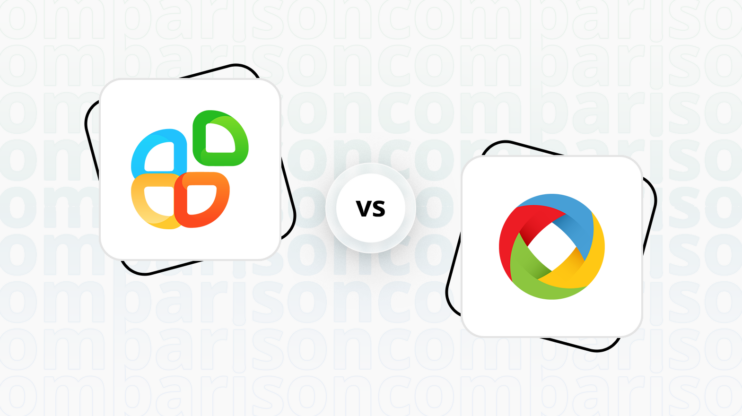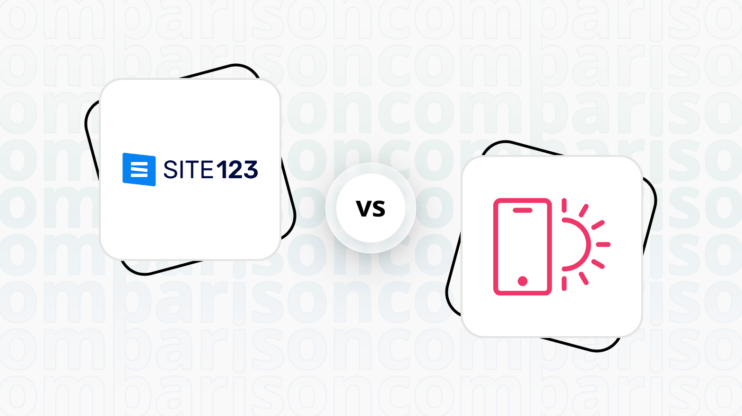Final verdict
Elementor and Zenfolio both offer unique strengths tailored to different user needs, but Elementor generally provides a more versatile and powerful website building experience.
-
Elementor (Overall Grade: 7.4/10)
excels with its extensive design functionalities, ease of use, and robust integration with WordPress. It is ideal for users seeking a flexible and customizable website builder with a wide range of templates and widgets. Elementor’s strong ecommerce capabilities, advanced marketing features, and comprehensive customer support make it a preferred choice for both beginners and professional web designers. -
Zenfolio (Overall Grade: 6.4/10)
is specifically designed for photographers and visual artists, offering elegant templates and integrated ecommerce features for selling prints and digital downloads. While it may not offer the same level of design flexibility as Elementor, Zenfolio provides specialized tools for managing and growing a photography business online. Its user-friendly interface and dedicated features make it a solid choice for photographers looking to showcase and sell their work.

|

|
|
|---|---|---|
|
Design functionalities & templates |
9.2 |
6.8 |
|
Ease of use |
8.8 |
6.3 |
|
Ecommerce |
7.6 |
6.3 |
|
Website Editors |
8.5 |
7.6 |
|
Product testing options |
5.6 |
8.4 |
|
Price |
8.0 |
8.2 |
|
Hosting quality |
7.8 |
5.7 |
|
Website speed optimization |
6.7 |
5.2 |
|
Plugins and integrations |
7.6 |
6.5 |
|
Marketing features |
7.8 |
6.1 |
|
Customer support |
7.2 |
6.7 |
|
Security |
9.1 |
8.0 |
|
AI capabilities |
7.4 |
2.4 |
|
User Management |
8.8 |
2.8 |
Best for ecommerce
 7.6
7.6
 6.3
6.3
Verdict
: Elementor is more versatile and powerful for general ecommerce needs, while Zenfolio is tailored specifically for photographers and visual artists.
-
Elementor
: With a score of 7.6, Elementor excels in ecommerce through its integration with WooCommerce, offering extensive customization options and a wide range of ecommerce widgets. It is ideal for users who need a flexible and powerful platform to build and manage online stores. However, it may require a learning curve and additional plugins for advanced features. -
Zenfolio
: Scoring 6.3, Zenfolio is designed specifically for photographers and visual artists. It provides integrated ecommerce features for selling prints and digital downloads, making it a great choice for those in the visual arts industry. While it may not offer the same level of flexibility as Elementor, it simplifies the ecommerce process for its target audience.
Best for informational & business websites
 8.9
8.9
 6.9
6.9
Verdict
: Elementor is the superior choice for creating informational and business websites due to its flexibility, extensive design features, and user-friendly interface. Zenfolio, while excellent for photographers, lacks the versatility needed for broader business applications.
-
Elementor
: Elementor shines with its visual drag-and-drop interface, making it easy for users to create highly customized websites without coding. Its wide range of widgets and templates, along with responsive design capabilities, make it ideal for both beginners and professional web designers. Elementor’s integration with WordPress themes and plugins further enhances its functionality, making it a robust choice for informational and business websites. With a score of 8.9, Elementor stands out for its versatility and ease of use. -
Zenfolio
: Zenfolio is tailored specifically for professional photographers and visual artists, offering elegant, mobile-friendly templates and integrated e-commerce capabilities. While it excels in showcasing and selling visual work, its design flexibility and customization options are limited compared to Elementor. Zenfolio’s focus on photography-specific needs makes it less suitable for broader business applications. With a score of 6.9, Zenfolio is best for those in the photography industry but may not meet the needs of other business types.
Detailed comparison
Design functionalities & templates
Design FunctionalitiesRepresents how well each platform allows for creative design and customization of websites.Score Components:
- Template Variety (30%): Range and quality of design templates.
- Customization (30%): Flexibility and options for design alterations.
- User Interface (20%): Ease and intuitiveness of the design process.
- Responsiveness (10%): Adaptability to different devices and screen sizes.
- Innovation (10%): Unique design features and tools.
 9.2
9.2
 6.8
6.8
🏆
Winner: Elementor.
If you’re looking for a platform that offers more creative control, a wide array of design features, and a larger selection of templates, Elementor is the preferred choice.
Elementor offers an extensive range of templates and designs, with over 100 responsive website kits covering various categories like business, creative, education, and more, directly available through Elementor’s platform. Additional sources like Envato Elements, Template Monster, and others provide a wider selection, including free and premium options, catering to diverse web design needs.
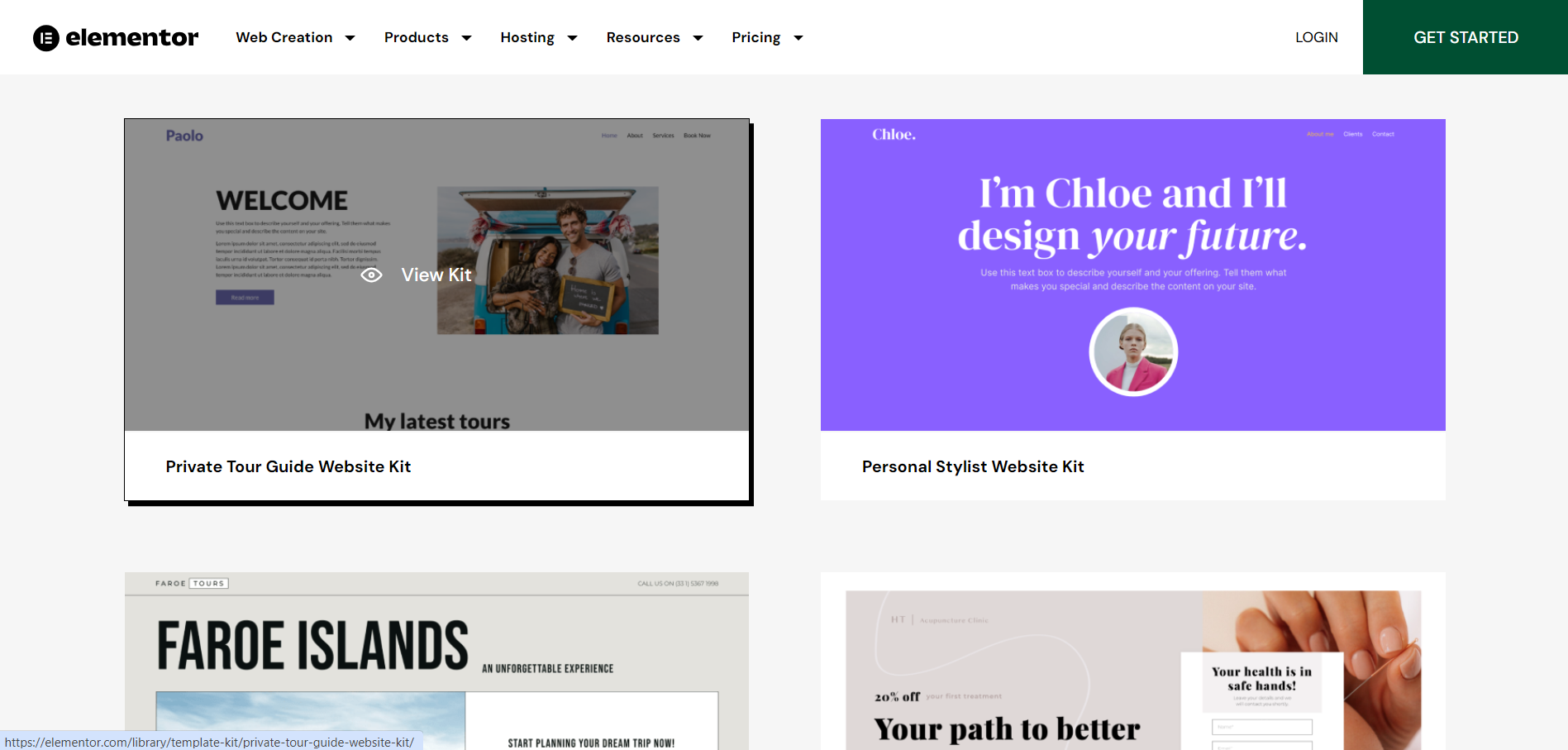
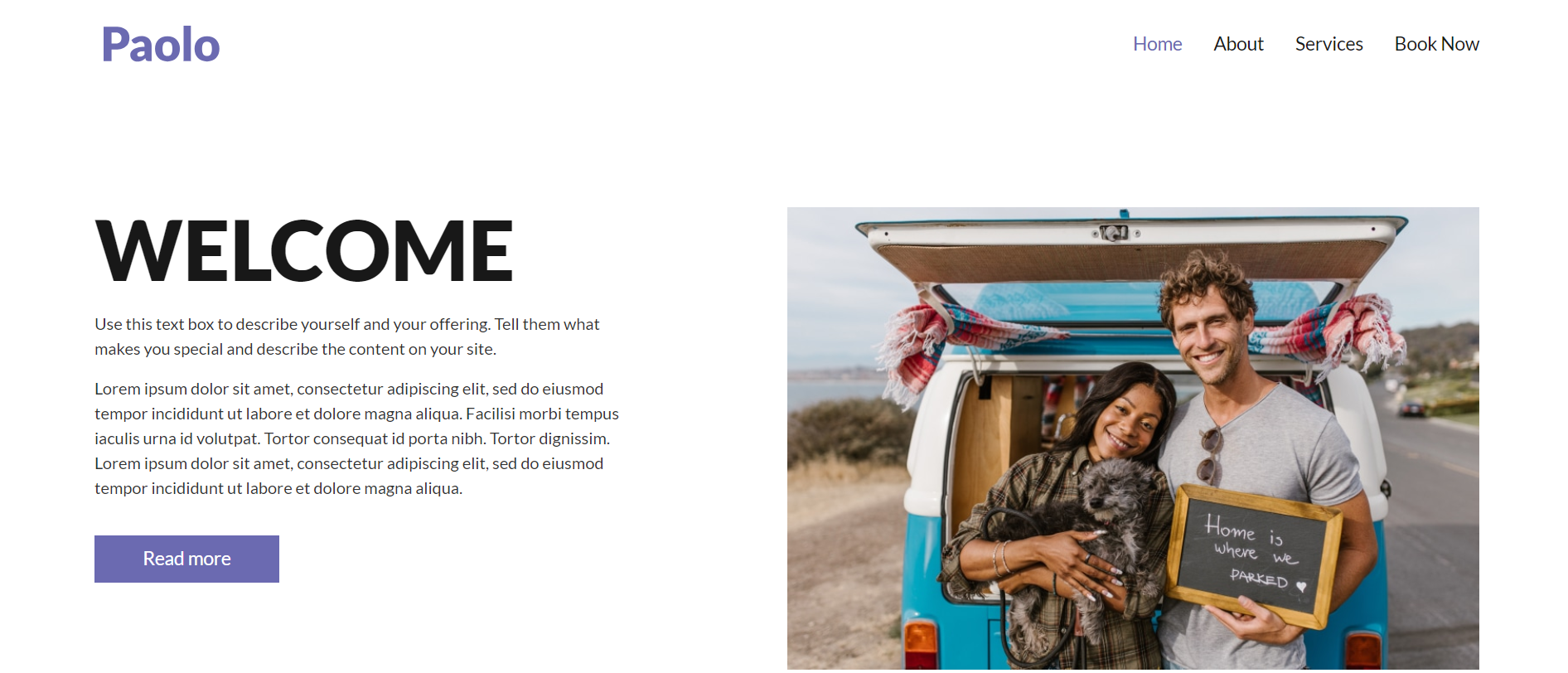
Compared to Elementor, Zenfolio offers a variety of customizable templates and features specifically tailored for photographers, with a focus on showcasing and selling their work. While it provides several customization options, including blocks for different layouts and styles, it may not offer as much versatility outside of photography-specific needs.
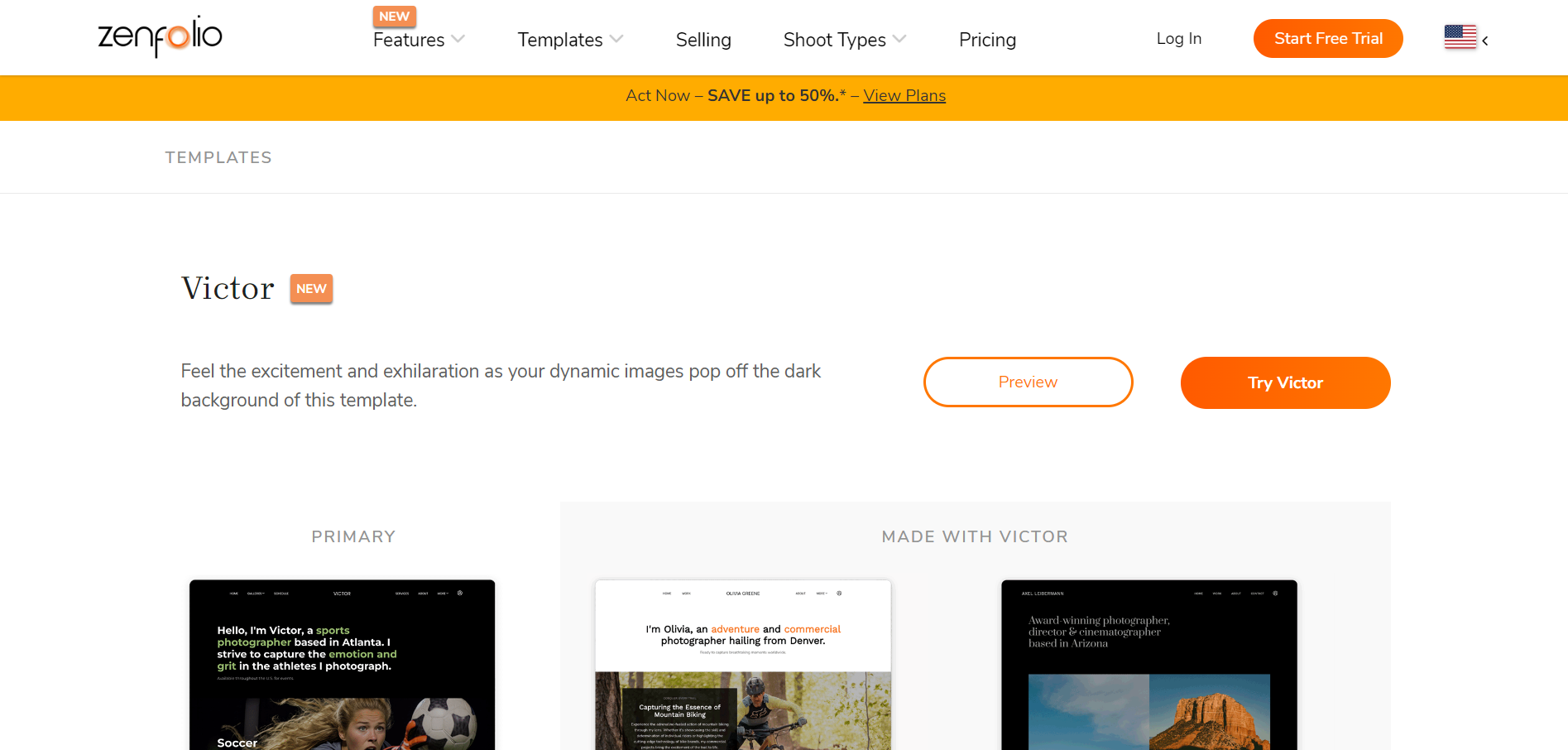
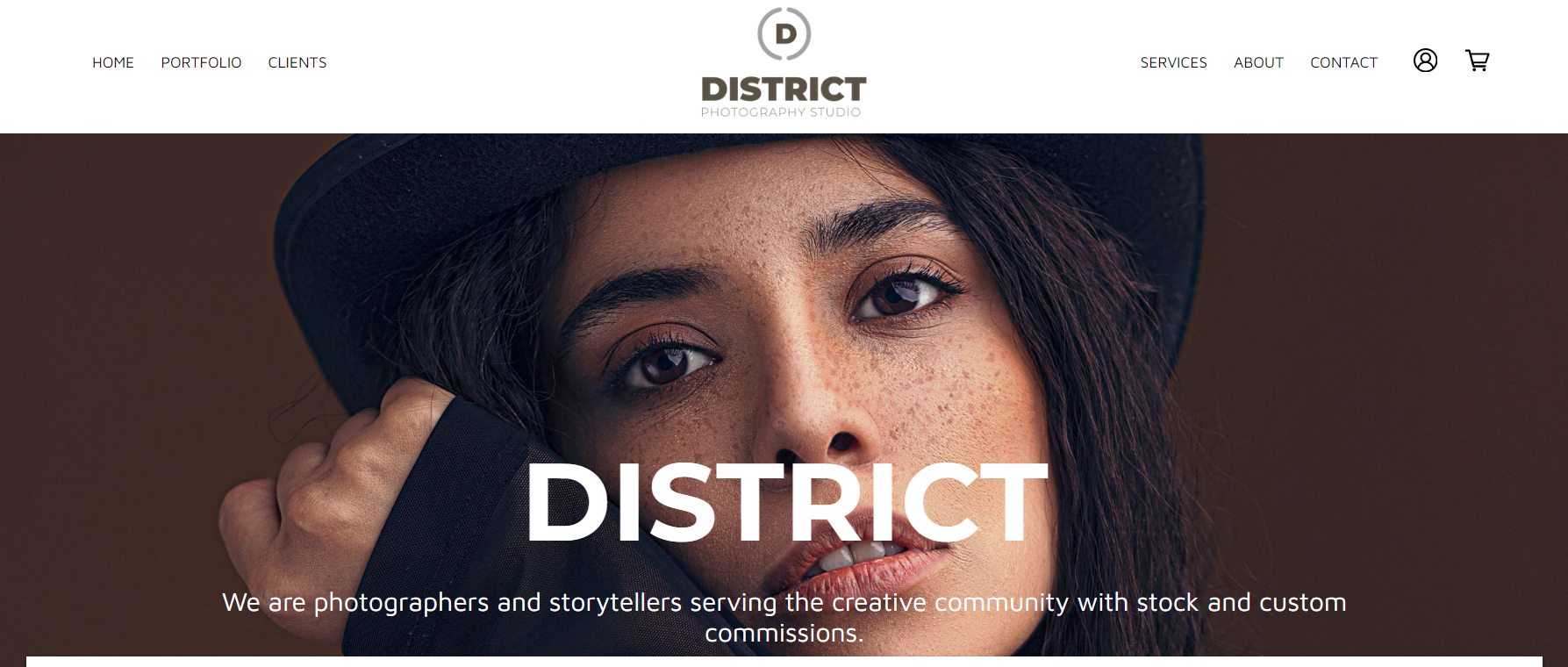
Get a head start on website creation with AI
Create a custom website tailored to your business needs 10X faster with 10Web AI Website Builder!
Ease of use
Ease of useReflects the platform’s overall user-friendliness.Score
Components:
- Learning curve (40%): Quickness and ease of getting started.
- Interface design (30%): Simplicity and intuitiveness of layout.
- User guidance (20%): Quality of tutorials and support.
- Flexibility (10%): Adaptability to various user skills.
 8.8
8.8
 6.3
6.3
🏆 Winner: Elementor
. Scoring an impressive 8.8, Elementor is renowned for its user-friendly interface, enabling both novices and professionals to create websites with ease. Zenfolio, with a score of 6.3, offers a specialized platform for photographers but has limitations in design flexibility and might not fully cater to those seeking extensive customization.
Learning Resources
🏆 Winner: Elementor
. Elementor provides an extensive array of learning resources suitable for both beginners and advanced users through its Elementor Academy. Zenfolio, on the other hand, offers a set of tutorials and articles in their help center but users have expressed a desire for more comprehensive learning resources.
For ecommerce
EcommerceMeasures the platform’s effectiveness in supporting online business activities.Score Components:
- Ecommerce themes and templates (20%): Variety and design of templates.
- Product management (25%): Ease of managing and organizing products.
- Payment options (25%): Variety and convenience of payment methods.
- Ecommerce features (20%): Features for managing an ecommerce store.
- Integration (10%): Compatibility with external e-commerce tools and services.
 7.6
7.6
 6.3
6.3
Elementor and Zenfolio both offer ecommerce capabilities, but they cater to different needs and audiences. Elementor, with its integration with WooCommerce, provides a robust platform for creating and customizing online stores. It offers a wide range of ecommerce widgets and customizable product pages, making it a powerful tool for building ecommerce sites. However, it may require a learning curve and additional plugins for advanced features.

|

|
|
|---|---|---|
|
Ecommerce themes and templates |
7.8 |
7.0 |
|
Product page customization |
8.4 |
7.2 |
|
Payment processing and commissions |
7.5 |
6.5 |
|
POS capabilities |
5.5 |
3.0 |
|
Payment gateways |
7.0 |
6.8 |
|
Product numbers |
7.0 |
5.0 |
|
Additional ecommerce features |
8.0 |
6.5 |
Elementor ecommerce features:
- WooCommerce Integration
- Customizable Product Pages
- Ecommerce Widgets
- Product Categories and Filters
- Shopping Cart Customization
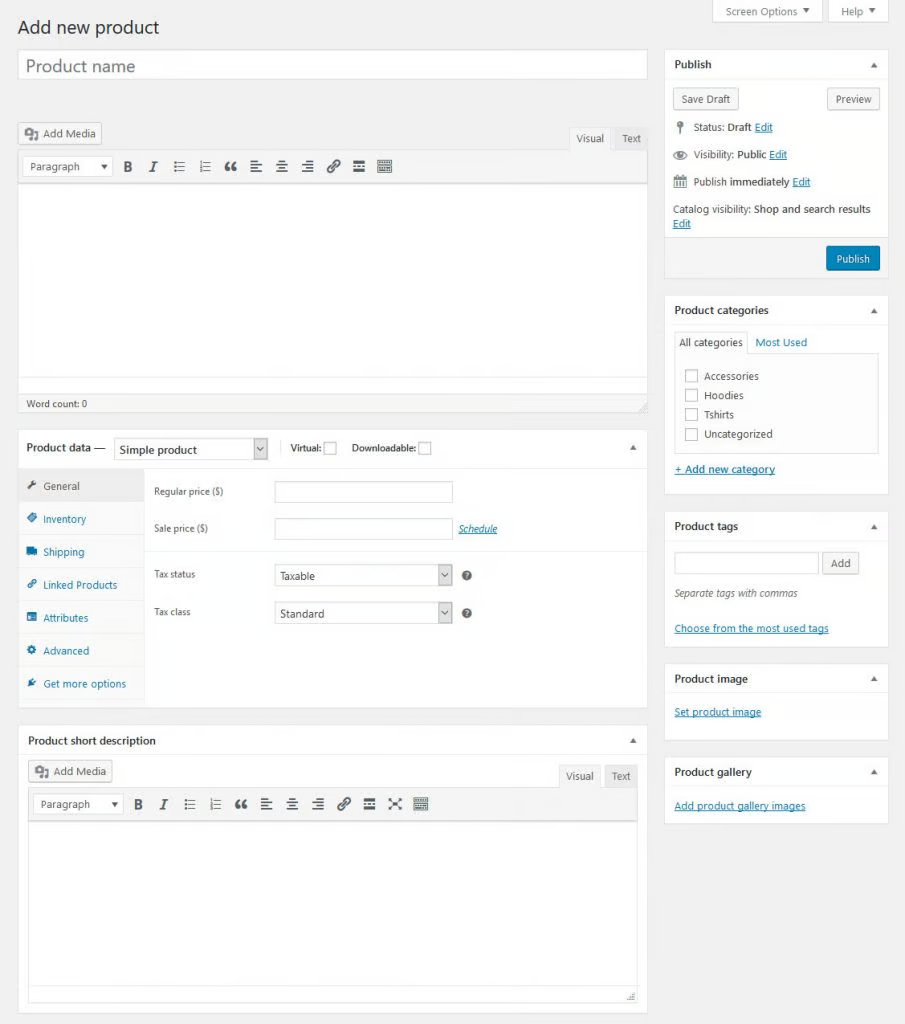
Zenfolio ecommerce features:
- Multiple Currency Support
- Discount Coupons
- Order management
- Gift Certificates
- Tax management
Ecommerce themes & templates
Elementor offers a diverse range of ecommerce-specific templates suitable for various online stores. These templates are designed to be mobile-responsive and SEO-friendly, ensuring optimal performance across devices and search engines. Zenfolio, on the other hand, provides customizable website templates with integrated e-commerce features for photographers, designed to showcase and sell their work across various genres.
Product page customization
Elementor offers extensive customization options for WooCommerce product pages, including custom layouts, WooCommerce widgets for various product elements, and options for styling product galleries and ‘Add to Cart’ buttons. Zenfolio allows for each product page to be adjusted to clearly display its unique attributes, with options such as size or color. It also supports customization in pricing and shipping settings, allowing sellers to cater to various needs effectively.
Payment processing
Elementor supports several payment gateways, notably through plugins and integrations, with Stripe and PayPal being prominent options for simple and widespread use. Zenfolio supports Stripe and PayPal for payment processing, integrating them seamlessly into its platform designed for photographers to sell their work online. The platform charges a commerce fee of 7% per order (excluding tax and shipping) and a payment processing fee for transactions through Stripe or PayPal.
Website Editors
Website EditorsEvaluates the platforms’ website building and editing capabilities.Score Components:
- Customization tools (40%): Range and power of editing features.
- Editor usability (30%): User experience within the editor.
- Design flexibility (20%): Freedom in layout and design changes.
- Update and maintenance ease (10%): Simplicity of updating and maintaining the site.
 8.5
8.5
 7.6
7.6
🏆
Winner: Elementor
. Elementor, with a score of 8.5, is a popular website builder plugin for WordPress that allows users to create and edit websites through a visual drag-and-drop interface. It offers a wide range of widgets and templates, enabling users to design their sites without needing to write code. Elementor is known for its flexibility, allowing for the customization of every detail on a webpage, making it suitable for both beginners and professional web designers.
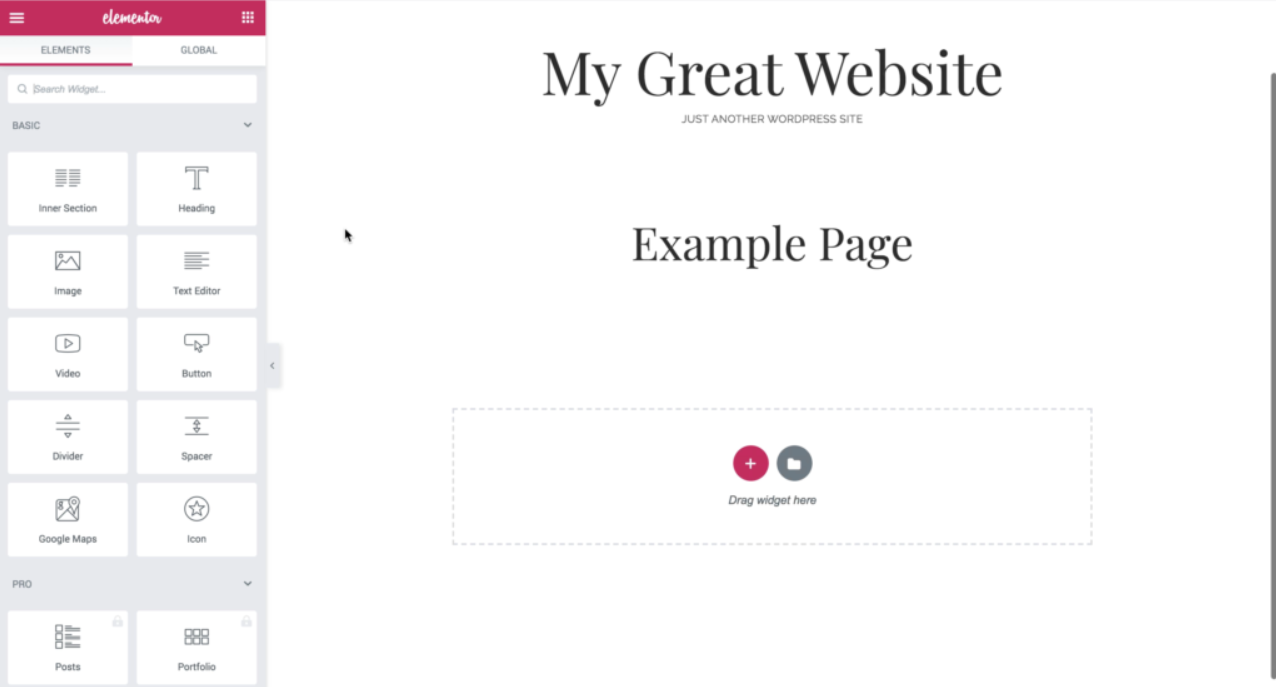
Zenfolio, scoring 7.6, is a comprehensive website builder and online service designed specifically for professional photographers and visual artists to showcase, share, and sell their work online. It offers a range of customizable website templates that are both elegant and mobile-friendly, allowing users to create a professional web presence without needing any coding skills.
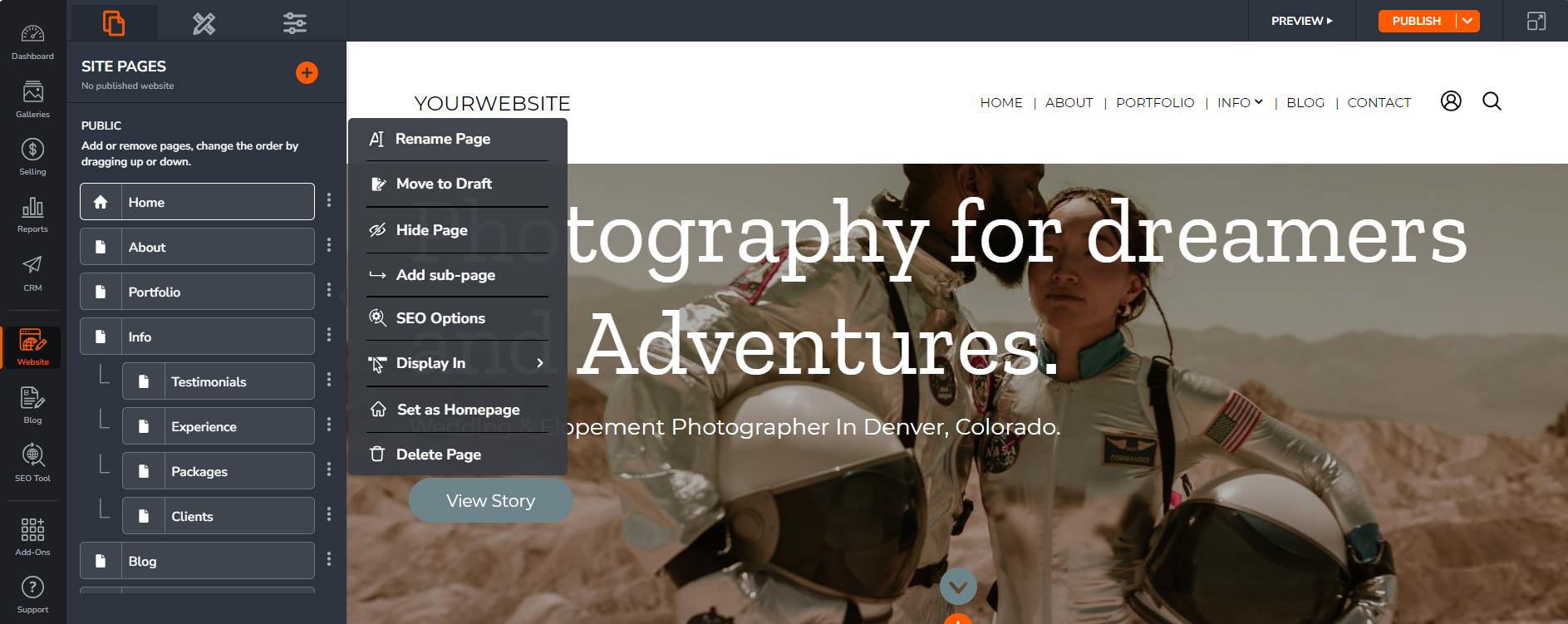
Mobile editor/app
 0
0
 8.5
8.5
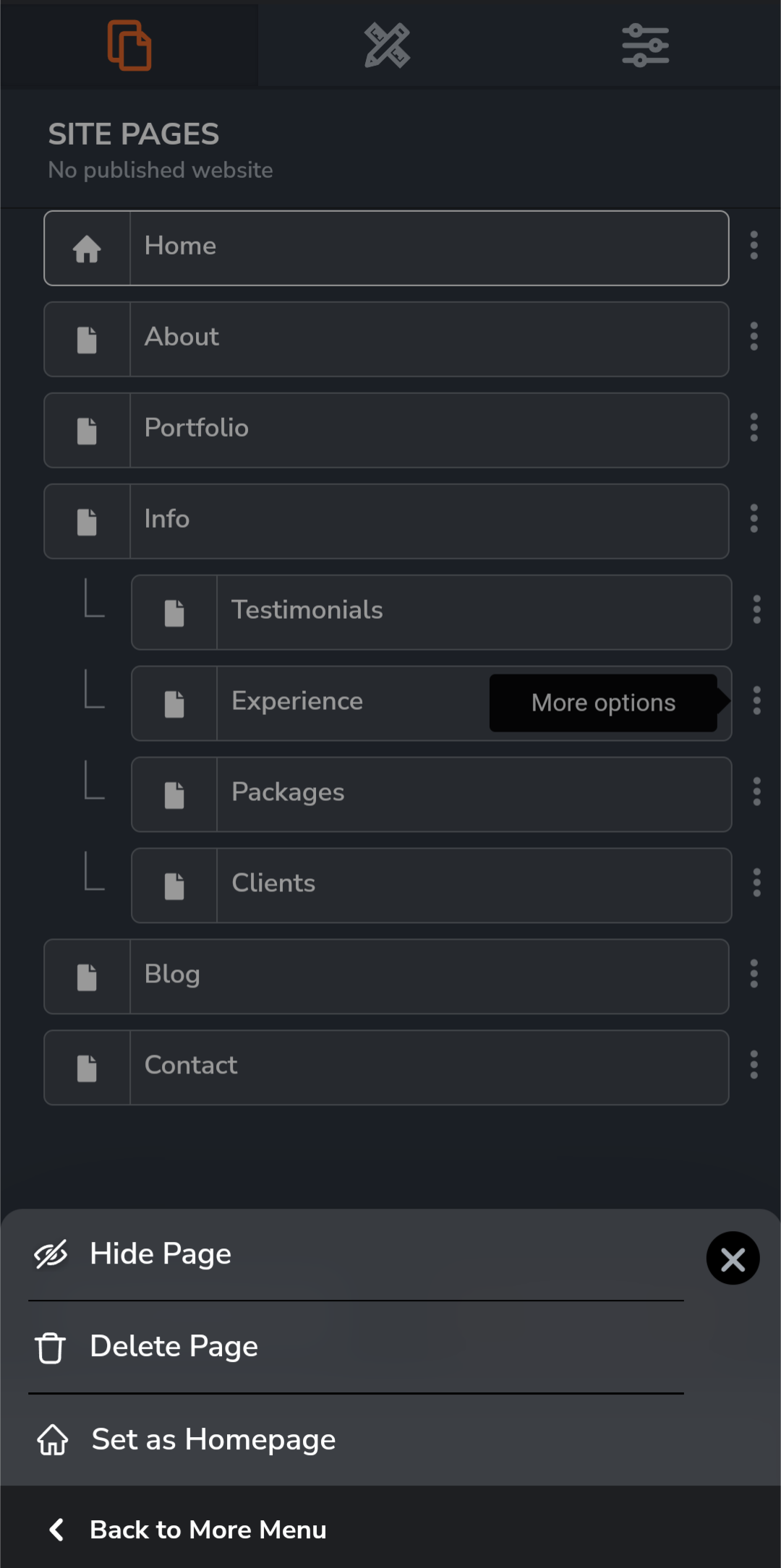
🏆
Winner: Zenfolio
. Elementor does not have a dedicated mobile editor, which is a significant disadvantage when compared to Zenfolio. Zenfolio, on the other hand, offers a mobile editor app designed for Zenfolio account holders to manage their websites and galleries directly from their mobile devices.
The app includes features for receiving notifications, managing galleries, handling sales-related tasks, and showcasing photos through a client presentation mode. Additionally, the app supports uploading and editing photos, as well as accessing various tools for reports, CRM, bookings, and blog management, although some features may still necessitate desktop use for full functionality.
This makes Zenfolio a more versatile and convenient option for users who need to manage their websites on the go.
Product testing options
Product Testing OptionsAssesses the options for trying out platform features before commitment.Score Components:
- Trial quality (40%): Extent and usefulness of the trial or free version.
- Feature accessibility (30%): How many features are available to test.
- Trial duration (20%): Length of the trial period.
- Ease of transition (10%): Smoothness of moving from trial to paid plans.
 5.6
5.6
 8.4
8.4
Overall Result
:
Zenfolio Wins
. Zenfolio scores 8.4 in product testing options, outperforming Elementor which scores 5.6. Zenfolio offers a 14-day free trial during which users can test all premium features. Elementor, on the other hand, does not offer a trial version, but users can test all premium features during the refundable period. Both platforms offer a 30-day money back guarantee.

|

|
|
|---|---|---|
|
Free Plan |
Yes, but only for self-hosted WordPress.org |
No |
|
Trial Duration |
No |
14 days |
|
Testing Premium Features |
It is possible to test all the premium features during the refundable period. |
During the free trial |
|
Money Back Guarantee |
30-day money back guarantee |
30-day money back guarantee |
Price
PriceLooks at the cost-effectiveness and value for money of each platform.Score Components:
- Plan value (40%): What each pricing tier offers.
- Transparency and clarity (30%): Clearness of pricing structures.
- Flexibility of plans (20%): Range of options to suit different budgets.
- Hidden costs (10%): Additional expenses not included in the plan.
 8.0
8.0
 8.2
8.2
Zenfolio and Elementor have similar price scores, but Zenfolio offers more discounts for annual billing.

|

|
|
|---|---|---|
|
$0-$10 |
Basic ($9.99/month): 1 website, with 10GB SSD storage, 25k monthly visitors, 30GB monthly bandwidth, daily auto backups stored for 14 days, Cloudflare CDN, and integrated caching tool. Value for price: 6.5 |
Portfolio ($9.00/month): Basic entry-level with 15 GB photo storage, HD video, single-page website. Value for price: 6.0 |
|
$10-$20 |
Business ($19.99/month): 1 website, with 20GB SSD storage, 50k monthly visitors, 50GB monthly bandwidth, daily auto backups stored for 30 days, Cloudflare CDN, integrated caching tool and access to staging environment. Value for price: 7.5 |
No offering at this amount. |
|
$20-$30 |
Grow ($22.99/month): 3 websites, with 30GB SSD storage, 75k monthly visitors, 75GB monthly bandwidth, daily auto backups stored for 30 days, Cloudflare CDN, integrated caching tool, access to staging environment and site cloning. Value for price: 8.5 |
PortfolioPlus ($23.00/month): Balanced features with 150 GB photo storage, HD video, single-page website. Value for price: 7.5 |
|
$40+ |
Scale ($49.99/month): 10 websites, with 40GB SSD storage, 100k monthly visitors, 100GB monthly bandwidth, daily auto backups stored for 30 days, Cloudflare CDN, integrated caching tool, access to staging environment and site cloning. Value for price: 9.0 |
ProSuite ($40.00/month): Extensive features for photo and video, multi-page websites, blog, templates, and more. Value for Price: 9.0 |
location. As a result in rare cases the prices displayed here can differ from the ones you see on their
websites.
Hosting quality
Hosting
qualityExamines the reliability and performance of the hosting solutions.Score Components:
- Uptime (40%): Consistency and reliability of website availability.
- Speed (30%): Loading times and performance.
- Bandwidth and storage (20%): Sufficiency of resources provided.
- Data centers (10%): Quality and distribution of hosting infrastructure.
 7.8
7.8
 5.7
5.7
🏆
Winner: Elementor
Elementor offers managed WordPress hosting with a 99.9% uptime guarantee and a data center in Belgium. Zenfolio, on the other hand, offers cloud hosting but does not disclose any information about its uptime or the locations of its data centers. This lack of transparency gives Elementor the edge in this category.

|

|
|
|---|---|---|
|
Do they offer hosting? |
Yes, included in all their plans, Google Cloud powered hosting, with 10-40GB SSD storage, and daily auto backups stored from 14 to 30 days depending on the plan |
Yes, with from 15GB to unlimited storage, with possibility to backup website’s content manually. |
|
Data Centers: |
1 data center in Belgium |
Zenfolio does not disclose the locations of its data centers |
|
Type of hosting: |
Managed WordPress Hosting |
Cloud Hosting |
|
Uptime: |
99.9% |
Zenfolio website builder does disclose any information about its uptime statistics |
|
Uptime Guarantee: |
Yes, 99.9% |
Zenfolio does not provide an uptime guarantee |
Website Speed Optimization
Website Speed OptimizationEvaluates optimization of website loading timesScore Components:
- PageSpeed Score (30%): Google’s score indicating performance optimization.
- Loading Time (30%): The average time until a website is fully interactive.
- Mobile Optimization (15%): Optimization effectiveness for mobile devices.
- Resource Optimization (15%): Optimizing images, scripts, and other heavy resources.
- CDN Usage (10%): Use of CDN to enhance speed across geolocations.
 6.7
6.7
 5.2
5.2
🏆 Winner: Elementor
Both Elementor and Zenfolio prioritize website performance and page speed, but Elementor has a higher website speed optimization score and employs more strategies for speed optimization.

|

|
|
|---|---|---|
|
Focus |
Lazy Loading, Code Minification, Caching, CDN |
Mobile responsive design |
|
Performance Tools |
Not specified |
Not specified |
|
Key Strategies |
Lazy Loading, Code Minification, Caching, CDN |
Mobile responsive design |
|
Load Times |
Varies depending on optimization and website complexity |
Varies depending on optimization and website complexity |
|
Page Speed Scores Range |
Not specified |
Not specified |
|
Core Web Vitals Improvement |
Not disclosed |
Not disclosed |
Elementor, a popular website builder plugin for WordPress, prioritizes website performance and page speed. It employs strategies such as lazy loading, code minification, caching, and CDN to optimize website speed. However, Elementor does not disclose any information about its Core Web Vitals improvements or provide specific data on load times and PageSpeed score ranges, stating that these vary depending on optimization and website complexity.
Zenfolio, a website builder designed for professional photographers and visual artists, also prioritizes website performance and page speed. Its main strategy for speed optimization is mobile responsive design. Like Elementor, Zenfolio does not provide any information on their Core Web Vitals improvements or specific data on load times and PageSpeed score ranges, stating that these vary depending on optimization and website complexity. Despite this, Zenfolio has a lower website speed optimization score than Elementor, making Elementor the winner in this comparison.
Get a head start on website creation with AI
Create a custom website tailored to your business needs 10X faster with 10Web AI Website Builder!
Plugins and integrations
Plugins and integrationsMeasures the range and effectiveness of additional plugins and integrations.Score Components:
- Variety of options (40%): Range of available add-ons.
- Integration smoothness (30%): Ease of integrating plugins into the site.
- Quality of plugins (20%): Functionality and reliability of the options.
- Custom integration capabilities (10%): Support for custom or third-party integrations.
 7.6
7.6
 6.5
6.5
🏆 Winner: Elementor.
With a score of 7.6, Elementor leads the way with its wide range of both free and premium add-ons that enhance website building. It offers advanced features such as theme building, dynamic content, and extensive widget libraries. Zenfolio, scoring 6.5, offers a focused set of plugins and integrations specifically designed for photographers. However, Elementor’s versatility and extensive integration capabilities give it the upper hand.
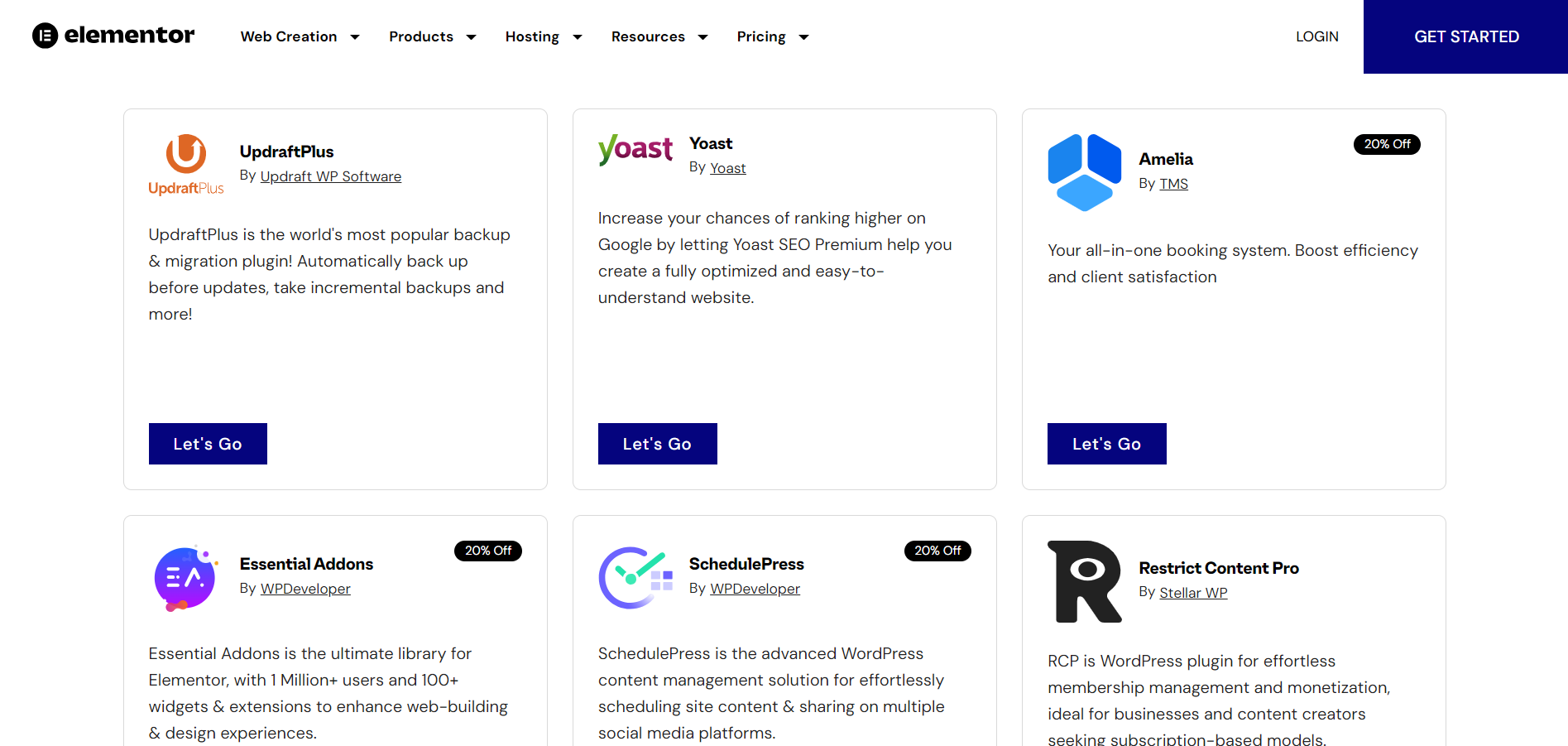
Marketing Features
Design FunctionalitiesRepresents how well each platform allows for creative design and customization of websites.Score Components:
- Template Variety (30%): Range and quality of design templates.
- Customization (30%): Flexibility and options for design alterations.
- User Interface (20%): Ease and intuitiveness of the design process.
- Responsiveness (10%): Adaptability to different devices and screen sizes.
- Innovation (10%): Unique design features and tools.
 7.8
7.8
 6.1
6.1
🏆
Overall Winner: Elementor
. Elementor stands out for its flexibility and integration with various marketing tools and plugins. Zenfolio, while offering a range of marketing features, is more limited in its SEO capabilities and blogging features.

|

|
|
|---|---|---|
|
SEO Tools |
Yes, with integration of various SEO plugins |
Yes, but limited |
|
Email Marketing |
Yes, with integration of various email marketing services and plugins |
Yes |
|
Blogging |
Yes |
Yes, on higher plans |
|
Social Media Integration |
Yes, integration of social media buttons |
Yes, Zenfolio enables sharing of websites via Facebook, Instagram, Twitter, and Pinterest |
|
Analytics and Reporting |
Yes, with integration of Google Analytics |
Yes, basic built-in analytics tools, and Google Analytics integration possibility |
|
Ads and Promotions |
Yes |
Yes, through its e-commerce capabilities, Zenfolio allows for the creation of custom discount coupons and automated marketing with Client Campaigns to boost sales |
Customer Support
Customer supportEvaluates the quality and availability of support options.Score Components:
- Response time (40%): Speed of support responses.
- Support quality (30%): Effectiveness and helpfulness of the support.
- Availability (20%): Range of support channels (phone, chat, email).
- Resource richness (10%): Quality of self-help and educational materials.
 7.2
7.2
 6.7
6.7
🏆 Winner: Elementor
. Comparing Elementor vs Zenfolio, Elementor takes the lead in this category with a higher customer support score of 7.2. Elementor offers 24/7 support through ticketing and live chat, ensuring users can get assistance at any time. This round-the-clock availability is a significant advantage for users who may encounter issues outside of regular business hours.
Zenfolio, on the other hand, provides comprehensive support through email 365 days a year, LiveChat from Monday to Thursday, and phone support for Advanced plan subscribers during specific hours. While Zenfolio’s support is robust, its limited live chat and phone support hours may be a drawback for users needing immediate assistance. However, Zenfolio’s rich Support Center with articles and video tutorials is a valuable resource for self-help.
Security
SecurityLooks at the platforms’ security measures and data protection.Score Components:
- Data protection (40%): Safeguards for user and customer data.
- SSL and encryption (30%): Implementation of secure connections.
- Compliance (20%): Adherence to industry security standards.
- Regular updates (10%): Frequency of security updates and patches.
 9.1
9.1
 8.0
8.0
🏆
Winner: Elementor
. Elementor’s security measures are robust and comprehensive, leveraging Google Cloud’s infrastructure for high security, including end-to-end encryption. They also offer advanced hosting features, including the use of Google Cloud Platform’s C2 servers and integration with Cloudflare’s Enterprise CDN, to deliver fast loading times and global reach. Elementor employs both active and passive security measures, including 24/7 monitoring, regular updates, backups, and specialized security protocols to protect against common threats. Their commitment to security is further emphasized by their ISO 27001 certification and a proactive Bug Bounty program.
Although it may not offer the same level of comprehensive security features as Elementor, Zenfolio also emphasizes security, providing SSL encryption for all its websites and protecting users’ work with watermarking. They offer password-protected galleries to control access and provide cloud backup for additional data protection. However, their security measures are not as comprehensive as Elementor’s, resulting in a lower security score.
AI Capabilities
AI capabilitiesMeasures the effectiveness of AI-driven features and tools.Score Components:
- Automation efficiency (40%): Impact of AI on streamlining processes.
- Personalization (30%): AI-driven customization for users or customers.
- AI-Assisted design (20%): Role of AI in website design and functionality.
- Data analysis (10%): Use of AI in interpreting user data and analytics.
 7.4
7.4
 2.4
2.4

|

|
|
|---|---|---|
|
AI Builder |
Elementor’s AI builder generates text, custom codes, and images directly within the editor |
|
|
AI Ecommerce features |
Elementor provides AI-driven features for eCommerce websites, including the ability to generate container layouts, custom images, text, and code directly within the editor |
Zenfolio offers AI-driven eCommerce features aimed at enhancing the online selling experience for photographers |
|
AI Content Generation |
Elementor’s AI content generation capabilities enhance website creation on WordPress by offering text and code generation, including HTML and CSS customization, as well as AI-based image solutions |
|
|
Additional AI features |
It is possible to integrate many third-party AI powered WordPress plugins or widgets into Elementor |
|
🏆 Winner: Elementor
. Elementor, with a score of 7.4, offers a range of AI features including an AI builder, AI-driven eCommerce features, AI content generation, and the ability to integrate third-party AI-powered plugins or widgets. On the other hand, Zenfolio, with a score of 2.4, offers limited AI features, with no AI builder, no AI content generation, and no additional AI features. However, Zenfolio does offer AI-driven eCommerce features aimed at enhancing the online selling experience for photographers.
User Management
User ManagementAssesses the platforms’ capabilities in managing user roles, permissions, and accessibility.Score Components:
- Role Customization (40%): Flexibility in creating and defining user roles and
permissions. - Ease of Management (30%): User interface and tools for managing users.
- Access Control (20%): Effectiveness of access control measures for different user
levels. - Scalability (10%): Ability to manage a growing number of users efficiently.
 8.8
8.8
 2.8
2.8
🏆 Winner: Elementor
. Elementor and Zenfolio have different approaches to user management.
- Elementor, being a WordPress plugin, relies on WordPress roles and permissions. Administrators have full access to edit any part of the site, including Elementor settings, while Editors can manage posts and pages made with Elementor. Authors and Contributors have limited capabilities, with the former being able to manage their own posts. Elementor Pro offers a Role Manager feature, enabling further customization of what different roles can do within Elementor. There’s no fixed limit on the number of users—it’s determined by the roles assigned by the site administrator.
- Zenfolio, on the other hand, only allows one user to edit and manage a website.
Elementor User Roles and Access Levels:
| Role | Description | Access Highlights |
|---|---|---|
| Administrator | Users with full access to all administration features, including Elementor settings. | Can edit all content, Access to Elementor settings, Can install plugins and themes, Can manage users |
| Editor | Users who can manage and publish content including pages and posts. | Can edit pages/posts created with Elementor, Cannot access Elementor settings, Can manage categories, tags, and links, Can moderate comments |
| Author | Users who can publish and manage their own posts. | Can create posts with Elementor, Cannot edit pages, Limited access to media library, Cannot access Elementor settings |
| Contributor | Users who can write and manage their own posts but cannot publish them. | Can create content with Elementor, Cannot publish or edit pages, No access to Elementor settings, Submissions require review by higher-level roles |
Zenfolio does not provide any specific user roles or access levels.
Additional Features

|

|
|
|---|---|---|
|
SSL Certificate |
|
|
|
Custom Domain |
|
|
|
Free Custom Domain Included |
|
|
|
International Domains |
|
|
|
Mobile Responsive |
|
|
|
Page Speed |
|
|
|
Website Builder Mobile App |
|
|
|
Convert a Website To An App |
|
|
|
Website Analytics |
|
|
|
Multilingual Sites |
|
|
|
Multiple Users |
|
|
User Feedback
Elementor is widely appreciated for its intuitive drag-and-drop interface, enabling rapid creation of professional and responsive websites without coding skills. It offers a vast range of templates and compatibility with WordPress, making it a go-to for diverse users. Despite its benefits, concerns arise regarding website loading times, subscription costs, and occasional compatibility issues. Feedback on customer support and legacy plan management is mixed, with some users experiencing dissatisfaction. Overall, Elementor is valued for its efficiency in web development, although some aspects, particularly support services, could be improved.
Users appreciate Zenfolio for its elegant and affordable site/portfolio designs, highlighting the platform’s suitability for photographers looking to showcase and sell their work online. The Starter plan is praised for its value, though some users express a desire to upgrade to the Pro plan for its enhanced client interaction features and customizable marketing tools. Criticisms include dissatisfaction with the platform’s handling of photo albums and a desire for more privacy and faster loading times. Overall, Zenfolio is valued for its ability to organize and share professional photographs and files, despite some navigational and performance issues.
The making of this blog
We followed a clear, step-by-step process to write and research this article.
FAQ
Which platform is better for photographers, Elementor or Zenfolio?
Can I use Elementor for ecommerce websites?
Is Zenfolio good for building non-photography websites?
Which platform offers better design and customization options?
How do Elementor and Zenfolio compare in terms of ease of use?
Which platform is more affordable, Elementor or Zenfolio?
Can I manage multiple users with Elementor or Zenfolio?
Which platform has better customer support?
Are Elementor and Zenfolio secure platforms for building websites?
Do Elementor and Zenfolio offer AI capabilities?










